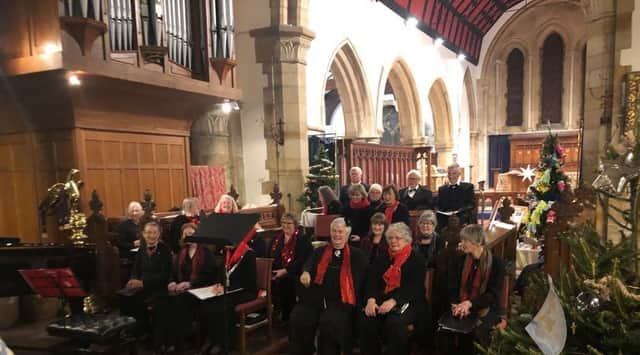Battle Choral Society sings Handel's Messiah in free concert


Under the baton of their new Musical Director, Vincent Wade, the choir will be accompanied Nigel Howard at the organ. A continuo on the virginals will be played by Duncan Reid, with Society member Anita Strevens providing cello continuo.
The solos will be taken by four established professionals, with the tenor solo part performed by Gary Marriott, who has sung with the choir many times before. Other soloists include local soprano Grace Constable, the Society’s former leader Helen Walker who will sing alto, and Tom Harvey who is returning to sing baritone. In addition Andrew Gill will be on trumpet and Ian McLeod on timpani.
Advertisement
Hide AdAdvertisement
Hide AdRefreshments, including wine, will also be free. There will be a raffle of hampers, which proved very popular at the last concert. Donations will be most welcome, and will be divided between three charities: St Mary’s Church, the Mayor’s charity Demelza, and Battle Choral Society.
Handel’s immortal music, first performed in London in March 1743, was an immediate success. The libretto, by Charles Jennens, uses principally Old Testament texts to tell the story of the coming of the Messiah through the prophecies of Isaiah.
It is traditional to stand for the The Hallelujah Chorus. According to tradition, King George II rose to his feet as the first triumphant notes rang out.
Royal protocol demanded that whenever the monarch stood, so did the entire audience and the orchestra. It is not known why the King stood at this point: some say it was the magnificence of the music, others that it woke him up, or that he was trying to ease the pain of gout. Whatever the reason, the tradition continues to this day.